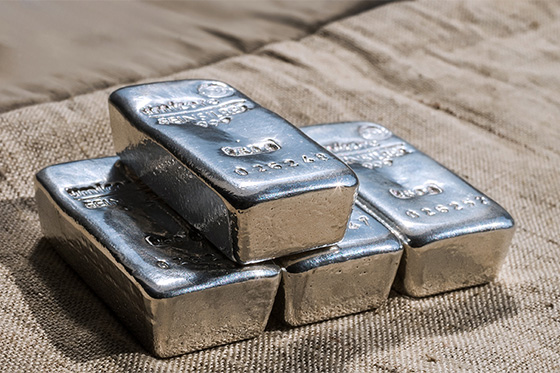Anatolians discovered silver approximately 5,000 years ago, changing the course of history forever. Initially, Greeks, Romans, and Egyptians used silver to store water and create cultural objects. When European settlers arrived in the Americas, they discovered mines filled with the precious metal, prompting them to develop a silver currency.
Today, silver is a component in dozens of products, including cameras, dental fillings, mirrors, coins, and even some types of clothing. Its physical and chemical properties also make it a desirable manufacturing additive, especially when working with copper and aluminum.
Silver’s Properties as a Metal Additive
Silver is an excellent thermal conductor, making it ideal for heat-sensitive applications. In fact, silver conducts heat better than aluminum, gold, copper, tungsten, zinc, and graphite. Thermal conductivity is important for heat-sensitive applications because it affects the speed at which heat travels to a cooler liquid or a heat sink.
Silver also has a low resistivity, which means it allows electrical current to flow through it easily. This makes it an excellent electrical conductor. In addition to its high level of electrical conductivity, silver doesn’t spark easily, making it especially useful for electrical applications. Manufacturers use silver to produce electrical contacts, electrical circuits, batteries, and more. Using a highly conductive metal like silver ensures electronics and other electrical items power up quickly.
Although conductivity is important, it’s not the only reason to use silver in manufacturing. This metal resists bacterial growth, making it an excellent choice for catheters, prosthetic bones, surgical appliances, and cardiac devices. Some wound-care products, including bandages, also use silver to prevent infections. Food manufacturers are experimenting with the use of silver nanoparticles to control the spread of foodborne illnesses.
Due to its ductility and malleability, silver is ideal for a variety of manufacturing applications. Ductility refers to the ability to be stretched or pulled into a thread without sustaining any damage. Malleability is a metal’s ability to be molded without breaking. Both characteristics make silver ideal for creating intricate part designs. For example, it’s possible to stretch silver into thin threads and use them to make electrical circuits for a computer.
Finally, silver is classified as a noble metal, making it extremely resistant to corrosion. Therefore, adding silver to other metals increases their durability.
Copper and Silver Alloys
Adding silver to copper strengthens both metals and increases corrosion resistance. Combining these metals also increases thermal and electrical conductivity, making copper-silver alloys ideal for manufacturing electrical contacts and connectors. Copper and silver both have high melting points, increasing stability in high-temperature environments.
It’s not difficult to create copper-silver alloys, but silver must be hardened before it’s combined with copper and other metals. Additionally, silver and copper absorb oxygen rapidly, making it important to eliminate oxygen during the melt. Otherwise, the cast piece may darken due to the presence of copper oxide. Oxygen also creates a porous cast product, increasing the risk of defects.
Aluminum and Silver Alloys
Combining silver with aluminum strengthens both metals, enhancing durability and reducing the risk of stress and fatigue over time. Aluminum-silver alloys also perform better at high temperatures. Manufacturers in the aerospace industry rely on these alloys to produce the fuselage and wings of commercial and passenger aircraft. Automakers also use aluminum-silver alloys for high-performance vehicle parts.
Additional benefits of aluminum-silver alloys include increased corrosion resistance, improved workability, and increased weldability. These properties are ideal for medical equipment manufacturing and electrical systems engineering.
Source High-Quality Silver-Enhanced Alloys
Silver-enhanced alloys offer superior thermal and electrical conductivity, increased strength, and better corrosion resistance, making them extremely versatile. These alloys are especially useful when producing intricate parts or working with high-temperature applications.
Belmont Metals has a wide variety of aluminum and copper alloys ready to be enhanced with silver. Reach out to us today.

